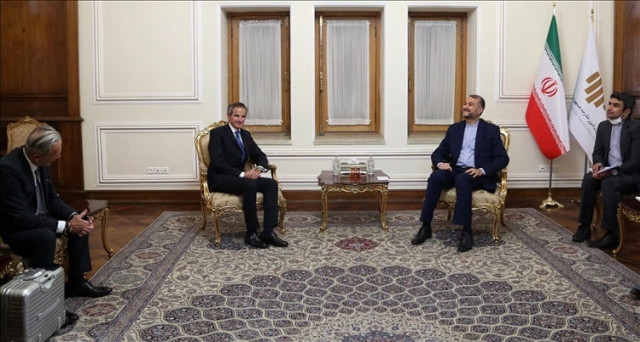IAEA and Iran strike deal on new cameras for sabotaged workshop
A confrontation at the IAEA board could have caused the wider talks to collapse, diplomats said

The UN nuclear watchdog reached agreement with Iran on Wednesday on replacing surveillance cameras at a centrifuge-parts workshop that had been removed after an apparent attack, removing one potential obstacle to wider nuclear talks.
Those wider, indirect talks between Iran and the United States on salvaging the 2015 Iran nuclear deal are deadlocked, and Washington had threatened to confront Tehran at the International Atomic Energy Agency's Board of Governors if it did not relent on the workshop this month.
Speaking after the Iran-IAEA agreement was announced, a US official, speaking on condition of anonymity, said Washington did not see a need for a special meeting of the IAEA's board if Tehran did as promised.
A confrontation at the IAEA board could have caused the wider talks to collapse, diplomats said.
In a statement, the IAEA said the agreement "will enable us to resume necessary continuity of knowledge at this facility", and that the new cameras would be installed "in coming days".
READ Israeli PM meets crown prince in UAE, Iran on agenda
One of the IAEA's four cameras at the workshop in the TESA Karaj complex was destroyed in June in apparent sabotage that Iran blamed on Israel. Iran then removed the cameras and did not let the IAEA return to replace them, angering the United States and its allies.
Iran has shown the IAEA the cameras and the storage media containing their footage, except that from the destroyed camera. The IAEA and Western powers have asked Iran to explain where it is, but Wednesday's agreement did not address that issue.
The bigger the gap in knowledge of what happened at Karaj, the greater will be the concern among Western states that Iran has hidden away key parts for centrifuges, machines that enrich uranium.
A senior diplomat said last month the IAEA does not know whether Karaj is operational.
"I sincerely hope that we can continue our constructive discussions to also address and resolve all outstanding safeguards issues in Iran," IAEA chief Rafael Grossi said in the statement.
The fate of the wider talks still appears to hang in the balance.
"This was a tactical move to avert a near-term diplomatic crisis, but the broader nuclear deal impasse remains," Eurasia Group analyst Henry Rome said.



















COMMENTS
Comments are moderated and generally will be posted if they are on-topic and not abusive.
For more information, please see our Comments FAQ